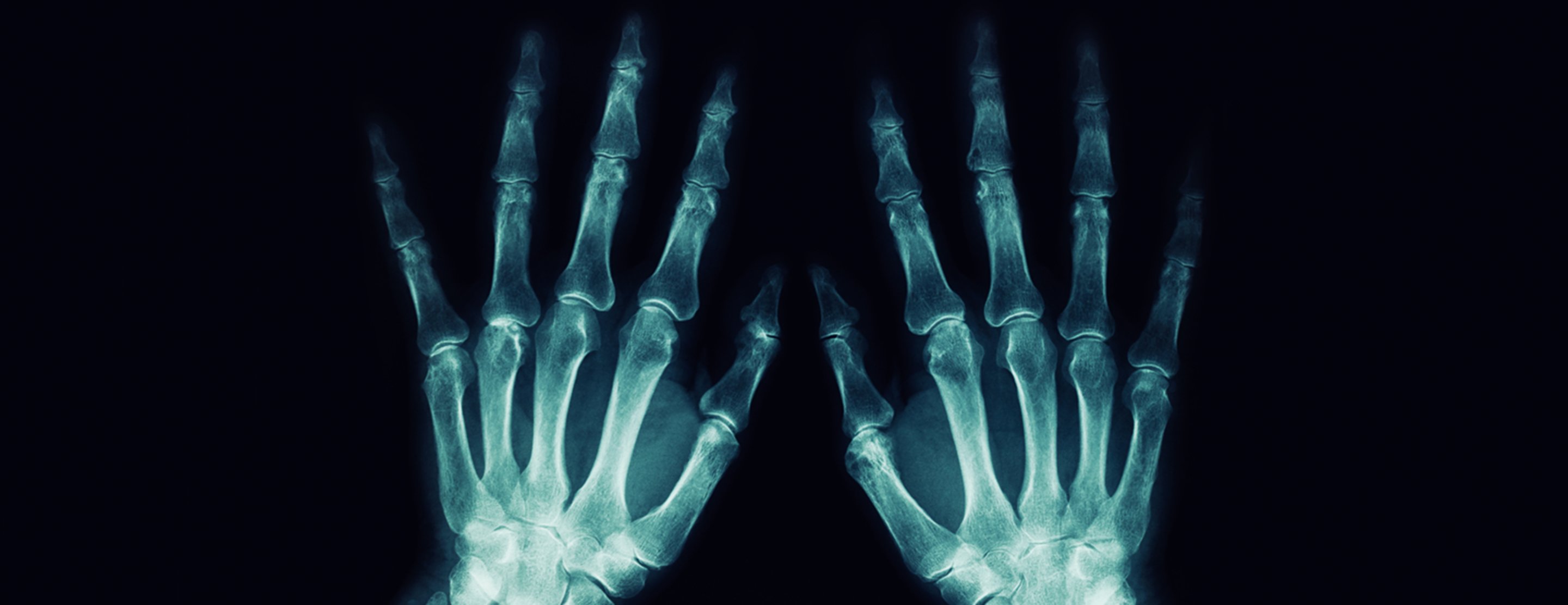
Hand x-ray
Definition
This test is an
Alternative Names
X-ray - hand
How the Test is Performed
A hand x-ray is taken in a hospital radiology department or your health care provider's office by an x-ray technician. You will be asked to place your hand on the x-ray table, and keep it very still as the picture is being taken. You may need to change the position of your hand, so more images can be taken.
How to Prepare for the Test
Tell your provider if you are pregnant or think you may be pregnant. Remove all jewelry from your hand and wrist.
How the Test will Feel
Generally, there is little or no discomfort associated with x-rays.
Why the Test is Performed
Hand x-ray is used to detect
What Abnormal Results Mean
Abnormal results may be due to:
- Fractures
Arthritis Bone tumors - Degenerative bone conditions
- Inflammation of the bone caused by an infection
(osteomyelitis )
Risks
There is low radiation exposure. X-rays are monitored and regulated to provide the minimum amount of radiation exposure needed to produce the image. Most experts feel that the risk is low when compared to the benefits. Pregnant women and children are more sensitive to the risks of x-rays.
References
Mettler FA. Skeletal system. In: Mettler FA, ed. Essentials of Radiology. 4th ed. Philadelphia, PA: Elsevier; 2019:chap 8.
Schoener B, Wagner MJ. Hand injuries. In: Walls RM, ed. Rosen's Emergency Medicine: Concepts and Clinical Practice. 10th ed. Philadelphia, PA: Elsevier; 2023:chap 42.
Review Date: 07/23/2024
The information provided herein should not be used during any medical emergency or for the diagnosis or treatment of any medical condition. A licensed physician should be consulted for diagnosis and treatment of any and all medical conditions. Call 911 for all medical emergencies. Links to other sites are provided for information only -- they do not constitute endorsements of those other sites. Copyright ©2019 A.D.A.M., Inc., as modified by University of California San Francisco. Any duplication or distribution of the information contained herein is strictly prohibited.
Information developed by A.D.A.M., Inc. regarding tests and test results may not directly correspond with information provided by UCSF Health. Please discuss with your doctor any questions or concerns you may have.





